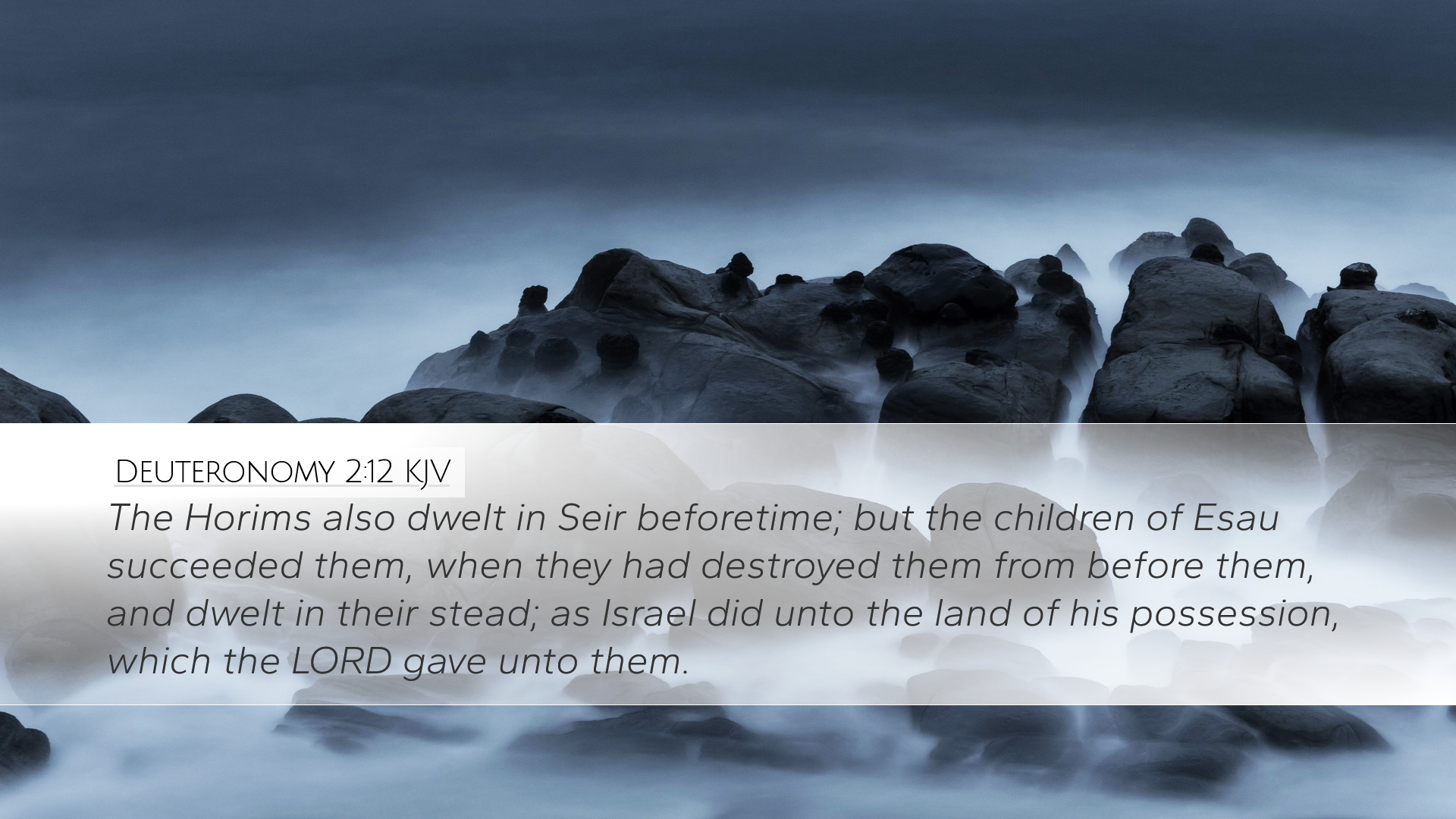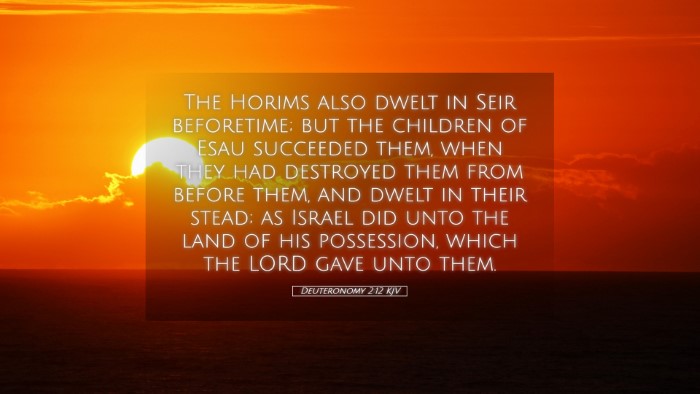Commentary on Deuteronomy 2:12
Deuteronomy 2:12 states: "The Horites also dwelt in Seir beforetime; but the children of Esau succeeded them, when they had destroyed them from before them, and dwelt in their stead; as Israel did unto the land of his possession, which the Lord gave unto them." This verse captures a significant moment in the history of the Israelites and their journey to the Promised Land. The transition from the Horites to the children of Esau illustrates a divine orchestration of nations and lands as a part of God's providential plan.
Historical Context
The Horites were a prehistoric tribe inhabiting the mountainous regions of Seir before the Israelites' encounter with this land. The mention of the "children of Esau" hints at genealogical ties; Esau, the twin brother of Jacob, is a patriarch of the Edomites. Understanding this lineage is pivotal as the Edomites were descendants of Esau, highlighting both historical and theological ramifications.
The Transition of Power
This passage reflects the broader theme of God’s sovereignty in the affairs of nations. The Horites’ displacement by the Edomites serves as a reminder of God's control over the rise and fall of nations. Matthew Henry emphasizes that just as Israel dispossessed the Canaanites from their land as ordained by God, the Edomites acted under divine authority to possess land that was once occupied by the Horites.
Theological Significance
- Divine Providence: History shows how God works through human actions to fulfill His promises. The inheritance of land by the children of Esau can be linked back to God's covenant with Abraham, where He promised land to his descendants.
- Judgment and Succession: The destruction of the Horites symbolizes divine judgment and the fulfillment of God’s word that nations will rise and fall under His command. It suggests that God removes those who oppose His plans and allows His chosen people to inherit what He designates.
- The Nature of Inheritance: Just as Israel received its inheritance in the Promised Land through God's ordained means, so too did Esau’s descendants. This reflects a broader principle found throughout scripture regarding the fulfillment of promises and inheritance, seen again in the New Testament where believers are called heirs of God.
Exegesis of Key Terms
In examining key terms within this verse, we find significant implications:
- Horites: This term refers to cave-dwellers in Hebrew, which indicates their dwelling places and potentially their way of life characterized by isolation or defensiveness.
- Seir: A region that represents both physical geography and theological significance as it became a territory for Esau’s descendants, suggesting God’s providence in assigning lands.
- Succeeded: This verb shows a succession through victory, aligning with God’s narrative of conquest and inheritance throughout biblical history.
Insights from Public Domain Commentaries
Albert Barnes notes that while the scripture highlights the transition of power from one ethnic group to another, it underlines an essential truth about the inevitability of God's plan, where He equips nations for their appointed tasks. Adam Clarke draws attention to the historical convolutions that led to this displacement, demonstrating how the land once possessed must yield to God's intended purposes.
Application for Today
This passage, while historical, offers application for contemporary believers. The recognition that God orchestrates events within our lives encourages trust in His sovereignty amidst chaos. As pastors and leaders, reflecting on God’s faithfulness can guide congregations through trials as we, like Israel, await our ultimate inheritance.
For theologians and scholars, the examination of this scripture contributes to broader discussions on divine providence, intercession, and historical theology. Understanding how God executes His will through nations can shape our perspectives on international events and the movement of people and faith today.
Conclusion
In summary, Deuteronomy 2:12 not only provides historical context regarding the Edomites and their land but also possesses rich theological implications about God's sovereignty and providence in earthly affairs. It serves as a case study for how God manages history to fulfill His promises and highlights the importance of understanding scriptural inheritance.


